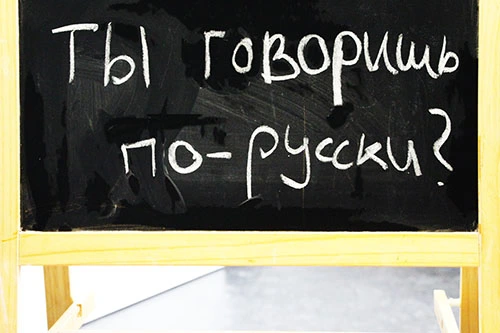Welcome to all Russian self-learners!
Why is it worth learning Russian?
The Russian language has more than 280 million speakers, making it the 7th most widely spoken language on the planet, just ahead of French. In fact, 146.5 million people speak Russian as their mother tongue, and about the same number – 135 million – speak it as a second language.
Russian-speaking people can be found mainly in Russia, but also in the former Soviet socialist republics such as Kazakhstan, Belarus, Kyrgyzstan, Ukraine, Uzbekistan, Tajikistan, Turkmenistan, Mongolia, Azerbaijan, Georgia, Armenia, Estonia, Latvia, Lithuania, Moldova, up to the former Yugoslavia and the former GDR (the former East Germany), where Russian was taught in schools before the collapse of the Soviet Republic in 1991.
In fact, many European countries still use the Cyrillic alphabet for their national language, for example in Bosnia and Herzegovina, in Serbia, in Bulgaria, in Belarus, in Ukraine and in the Baltic States. In addition, Russian is still a lingua franca in the Caucasus and Asia Minor.
Russian is descended from the Slavic languages and is one of the official languages of the UN. Since Bulgaria's accession in 2007, the Cyrillic alphabet is also the third official alphabet of the European Union after Latin and Greek.
And once you know Russian – which is considered one of the most difficult Slavic languages – it is all the easier to add other Slavic languages such as Serbian, Polish, Croatian, Czech, etc.


![[Translate to English:] Logo Akkreditierungsrat: Systemakkreditiert](/fileadmin/_processed_/2/8/csm_AR-Siegel_Systemakkreditierung_bc4ea3377d.webp)








![[Translate to English:] Logo IHK Ausbildungsbetrieb 2023](/fileadmin/_processed_/6/0/csm_IHK_Ausbildungsbetrieb_digital_2023_6850f47537.webp)


